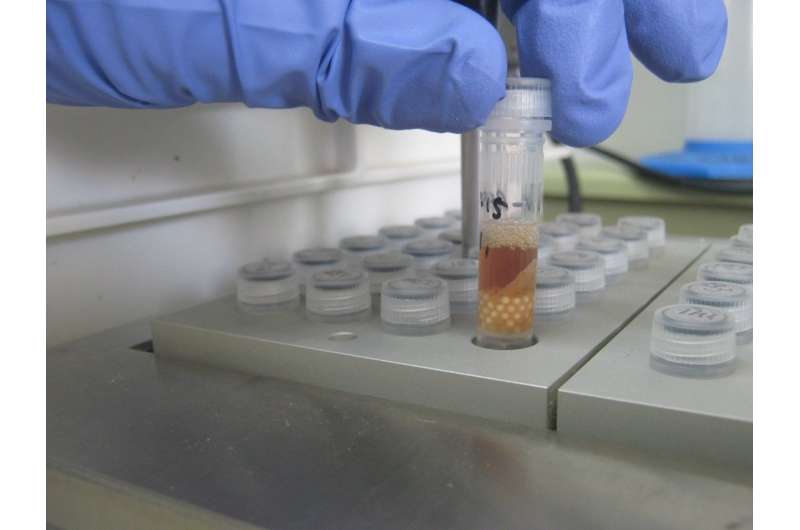The author's hand. Credit: Lucas Cunningham, 2017
In 1988, the World Health Organization set out to eradicate polio and established a network of 145 labs around the world that are designed to process polio tests. Now, those labs are well-equipped to help tackle neglected tropical diseases, researchers report in PLOS Neglected Tropical Diseases.
The Global Polio Laboratory Network (GPLN) receives samples from local health clinics where individuals have presented with signs of polio, and carries out necessary culture screens and gene-based PCR tests to diagnose the disease. Across Africa, there are 16 GPLN labs that have received an average of 22,017 samples per year over the past five years.
In the new work, Lucas Cunningham, of the Liverpool School of Tropical Medicine, UK, and colleagues examined the possibility of expanding the tests conducted at GPLN labs to include other pathogens of public health importance, namely soil transmitted helminths and schistosoma. A pilot study of the expansion was carried out at the Ghana GPLN lab, where 448 fecal samples were tested for helminths.
The Ghana GPLN lab was able to successfully test for helminths, identifying prevalence of 22% for the combined helminth infections. The design of the current study was not suitable to make any epidemiological conclusions, but did demonstrate the suitability of adapting a GPLN lab for the detection of helminths. Additionally, 1% of samples were infected with Strongyloides for which there is no surveillance system.
"Even though the current narrow clinical symptoms required to qualify a sample to be sent to the GPLN limits their epidemiological use," the researchers say. "The study demonstrates a potential way forward in the monitoring and control of neglected tropical diseases that could be included in the legacy plan of the GPLN.
More information: Cunningham LJ, Odoom J, Pratt D, Boatemaa L, Asante-Ntim N, Attiku K, et al. (2018) Expanding molecular diagnostics of helminthiasis: Piloting use of the GPLN platform for surveillance of soil transmitted helminthiasis and schistosomiasis in Ghana. PLoS Negl Trop Dis 12(1): e0006129. doi.org/10.1371/journal.pntd.0006129
Journal information: PLoS Neglected Tropical Diseases
Provided by Public Library of Science





















